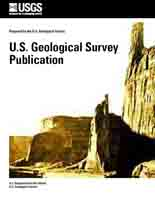
Coastal-change and glaciological map of the Bakutis Coast, Antarctica
Links
- Plate: Plate 1 (pdf)
- Superseding Publications:
- Download citation as: RIS | Dublin Core
Abstract
Suggested Citation
Swithinbank, C., Williams, R., Ferrigno, J.G., Seekins, B.A., Lucchita, B., Rosanova, C.E., 1997, Coastal-change and glaciological map of the Bakutis Coast, Antarctica (1st Edition): U.S. Geological Survey IMAP 2600-F, 1 Plate: 41.97 x 30.00 inches, https://doi.org/10.3133/i2600F_ED1.
Study Area
| Publication type | Report |
|---|---|
| Publication Subtype | USGS Numbered Series |
| Title | Coastal-change and glaciological map of the Bakutis Coast, Antarctica |
| Series title | IMAP |
| Series number | 2600-F |
| ISBN | 0607879041 |
| DOI | 10.3133/i2600F_ED1 |
| Edition | 1st Edition |
| Year Published | 1997 |
| Language | English |
| Publisher | U.S. Geological Survey |
| Contributing office(s) | Eastern Geology and Paleoclimate Science Center |
| Description | 1 Plate: 41.97 x 30.00 inches |
| Larger Work Type | Report |
| Larger Work Subtype | USGS Numbered Series |
| Larger Work Title | Coastal-change and glaciological maps of Antarctica |
| Other Geospatial | Antarctica, Bakutis Coast |
| Projection | Polar stereographic, MSL |
| Scale | 1000000 |

